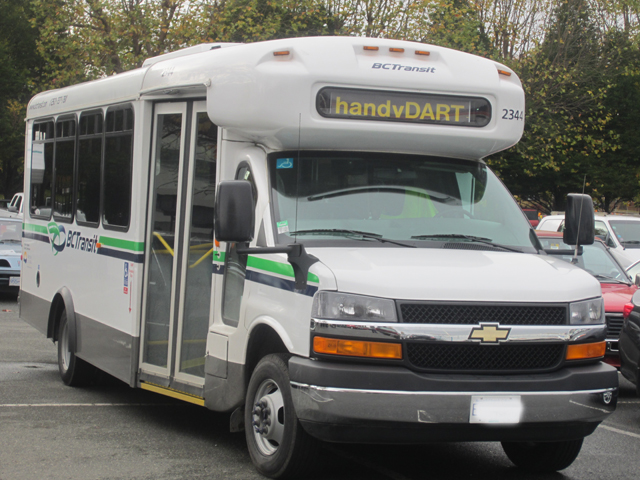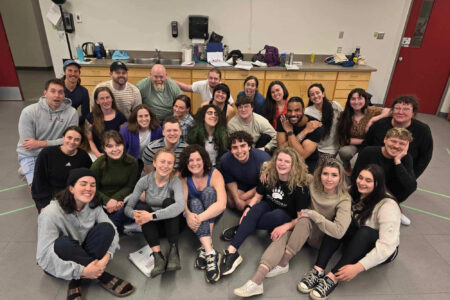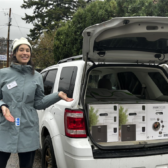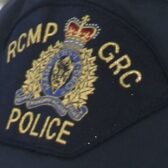Report: Baby boomers face transportation challenges
They grew up feeling secure.
They benefited from easier access to education.
They came of age during a time of some of the biggest social change in North America.
And now the baby boomers, all of whom will turn 65 between 2011 and 2031, are facing a huge challenge in the West Kootenay.
How will they get around when they can no longer get around—especially to take care of their health care needs many kilometers from home?
There are a lot of pieces to this puzzle, but they don’t fit yet, and that’s leaving a big hole in the ability of seniors to access their health care, said a recently released report from Nelson Cares.
After three years of research and meetings, Moving Together: A Collaborative Approach to Addressing Seniors’ Transportation Barriers addressed what the ever-increasing population of regional seniors will need to improve their health and social outcomes in the future.
“It’s not about adding resources,” said the report’s author Corrine Younie with the Age Friendly Community (AFC) Initiative sponsored by Nelson Cares.
“Let’s be creative, let’s be innovative. How can we use our resources efficiently?” said Younie.
The Moving Together Project viewed transportation options as a whole, including municipal and regional transit, volunteer/non‐profit community transportation programs, and private/for profit transportation services.
According to the report, an AFC survey of area service providers determined transportation to be the greatest barrier faced by seniors, by a wide margin (over 80%).
That problem is certainly on the minds of Nakusp residents Ann and Ken Livingstone. At ages 69 and 70 respectively, they can see the potential for problems down the road.
“This affects the whole valley,” said Ann. “Thankfully we can still drive. But we have to make sure we have services. I know of 90 year olds that have had to wait for hours at the mall waiting for a bus.”
Even now, adequate bus stops and shelters are needed said Livingstone.
The AFC Advisory Committee conceded that the issues surrounding transportation access in Nelson and area are too complex to address with a single project.
The catchment area for this work would match that of the West Kootenay Transit region which includes an area spanning between Kaslo west to Trail, north to Nakusp and south to Salmo.
The AFC pilot project was divided into three phases with working groups.
Phase I identified the barriers and working groups developed recommendations to address the barriers them.
The culmination of Phase II was a gathering that brought together key stakeholders from across the region and province to review and further develop the recommendations.
The outcome of this gathering was an Action Plan for a planned Phase III of the project to begin implementation in 2015.
The report acknowledged that non‐emergency transportation to medical appointments is crucial for rural seniors, and it recognized that transportation to social outings is essential for their well‐being.
Some of the recommendations include: Increase public awareness about seniors’ transportation and the risks of social isolation; offer tangible ways for neighbours to get involved in helping local seniors; implement “Transit Training” workshops for seniors and people with disabilities; determine whether safety and security are issues for seniors using public transportation in the region; develop strategies to support solutions; take annual surveys and use the tools and resources available to help communities improve their local and regional transportation systems.
Interior Health has a part to play in this as well as a “transportation animator” who solves individual transportation problems on a case by case basis.
Interior Health projects that, while 15% of the population in the Nelson Local Health Area were 65+ in 2011, a growth of 43.5% within this age group and 9.24% in the 75+ age group is expected by 2016.
“There is a general lack of awareness within the community regarding the issue of seniors’ transportation challenges,” Younie said in the report.
“Public education needs to reach both ways: seniors need information about their transportation options and the general public needs to understand the critical nature of this issue and its potential impact on our communities.”
For instance, Younie said, many seniors have not planned for “life after driving.”
“They haven’t even given any thought to how they’re going to get their groceries….health, housing and transportation will be major issues.”
Another challenge facing community‐based transportation services and senior‐serving community organizations is the shrinking volunteer pool.
Transit recommendations include a Handy Dart system that makes two trips per week from Nelson to Trail with a stop at the Castlegar Recreation Centre for a bathroom break and more bus shelters at identified proposed Medi Dart stops. The Kootenay Car Share and Kootenay Ride Share were also included.
“Developing a network of transportation services that meet seniors’ diverse needs is challenging but not impossible,” Younie wrote in the report.
“The Moving Together Working Group believes that by working together as a community – across sectors and individual interests ‐we can develop innovative solutions that draw on best practices and build on our strengths.

























